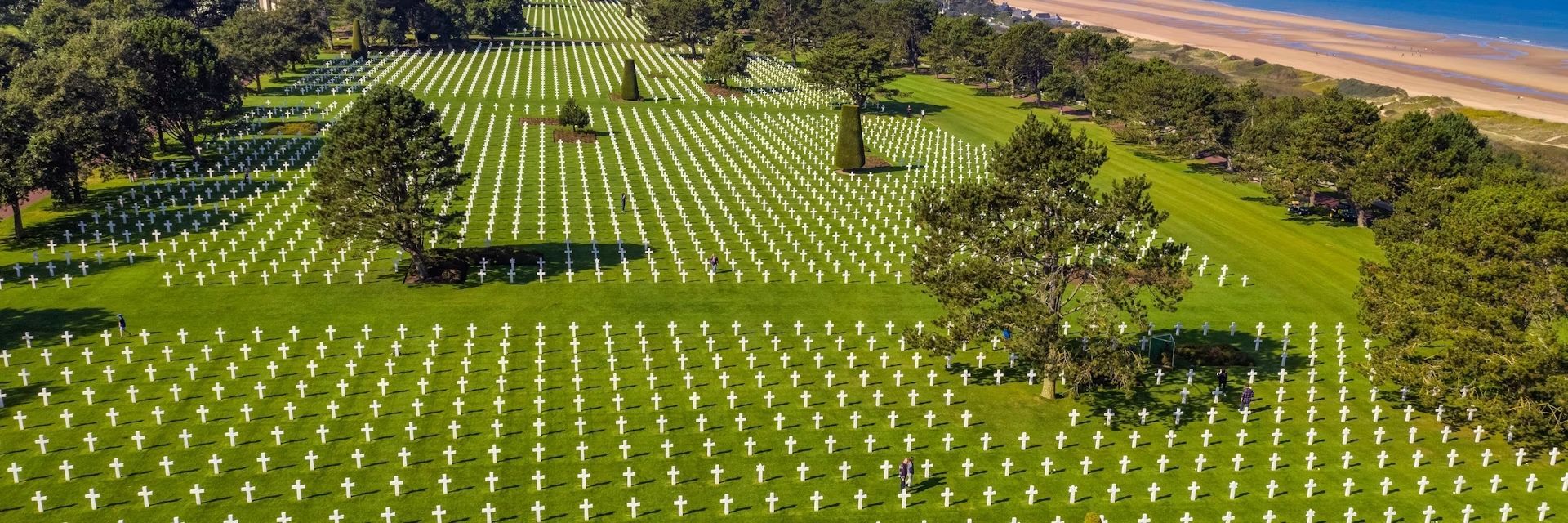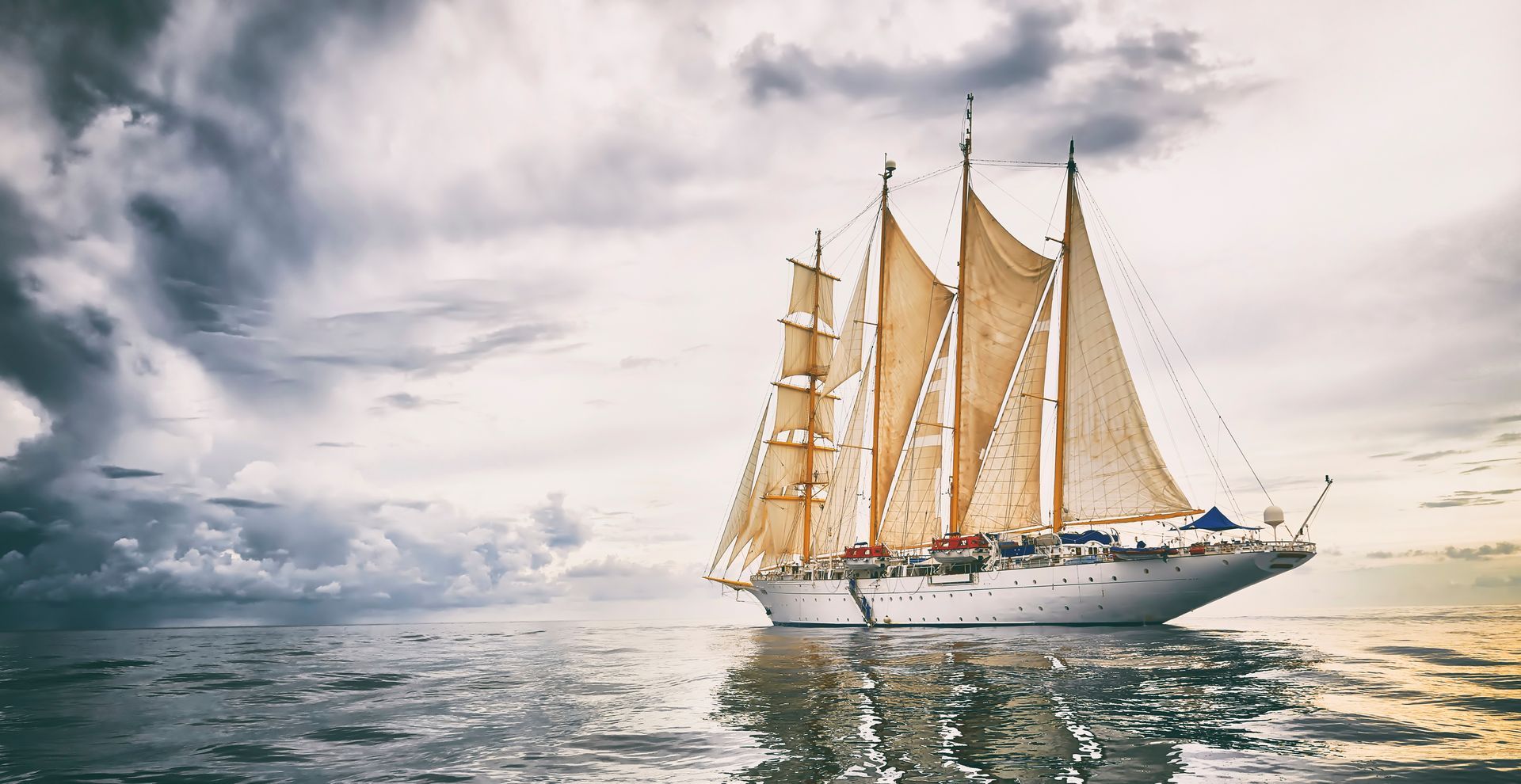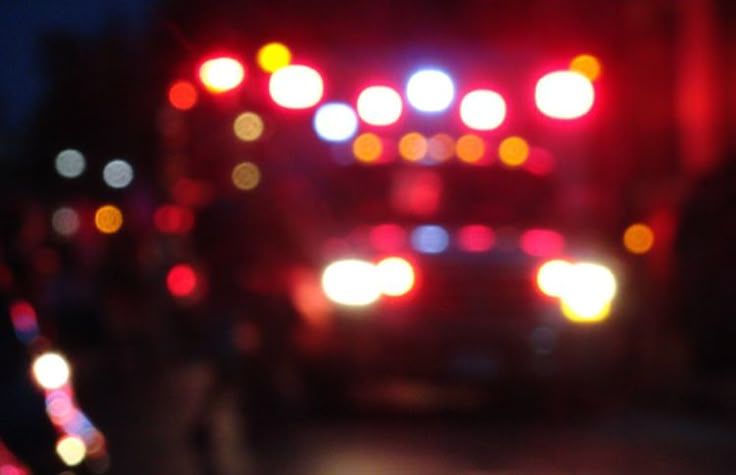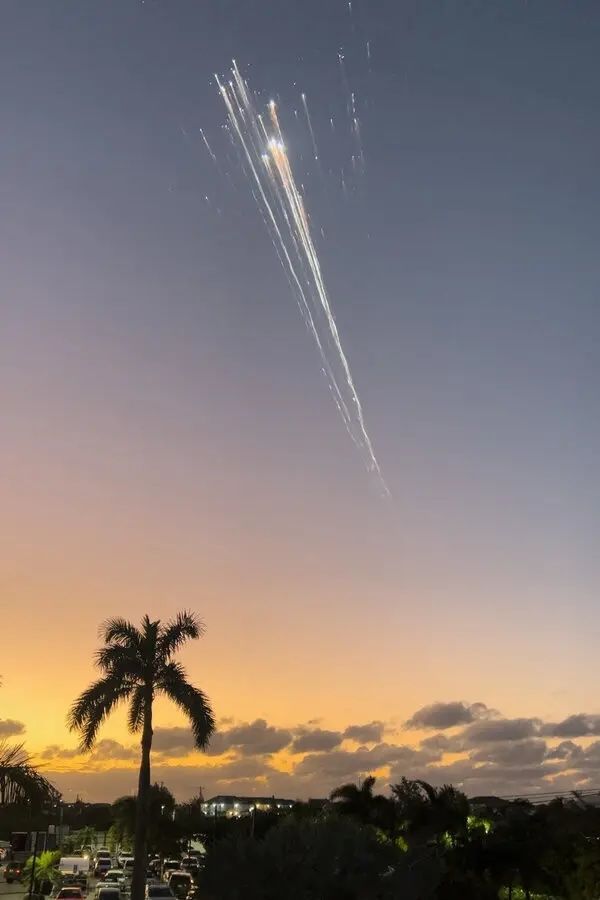Flags of My Two Fathers
- By Jon Hagen
- •
- 01 Jun, 2024
A Reflection 80 Years After D-Day

Flag (noun): Identifier attached to the end of a staff or standard; the ensign/sign carried at the head of a military band (cf., bandum, Latin, which meant first a “band,” an organized military troop, and then a “flag” or “banner”), to indicate the line of march, or the rallying point; used to indicate possession of a space or territory.
In the early evening of June 5, 1944, nearly seven thousand Allied naval vessels began departing from ports across southern England. It wasn’t until the personnel were out to sea that word spread—they were headed for the coast of France. Their mission was codenamed Operation Neptune. They were the naval and assault component of the larger mission, Operation Overlord, to defeat the German war machine. In the twilight of June 6, little did that great assembly know they were entering into the fog of what would come to be known as the longest day. D-Day.
The trip across the English Channel was timed for a break of dawn arrival. The armada was comprised of a vast array of military vessels—from massive battleships to defensive minesweepers to much smaller 36-person Higgins boats. Among that flotilla was the USS LCI (Landing Craft, Infantry) 209, and the signalman on the 209 was a twenty-one-year-old by the name of Andrew Hagen.
The 209 was assigned to the flotilla attacking Utah Beach, the most westerly of the five beaches of Normandy. At 5:50 a.m., eighteen warships began pummeling with their big guns the German defenses, and at 6:10 a.m. three hundred B-26 bombers came in low and dropped their munitions on enemy lines. At 6:30 a.m., the captain of the 209 called down from the bridge, “Alright, Hagen, fire!” The signalman dropped a dry canister into a tripod welded to the deck. A massive flare then shot high into the sky, causing the warships to cease their bombardment and signaling the beginning of the invasion at Utah Beach.
During that longest of days, the 209 ferried soldiers from the 4th Infantry Division from troop ships to the beachhead. No small amount of blood and water would mix for the U.S. Navy that day as over a dozen landing craft, two destroyers, two troop ships, and three minesweepers were sunk. In one of the runs from a troop ship to shore, the 209 was churning alongside a smaller-version LCI loaded with soldiers. The smaller LCI was there one minute and gone the next. It had hit a mine, and in an instant all aboard were lost.
D-Day has gone down in history as one of a handful of single-day military engagements that changed the world in a significant way. As in the Battle of Marathon where the Greeks held off the invading Persians, the Battle of Waterloo where Napolean lost his grip on power, and the Siege of Bastogne where the American 101st Airborne Division held off the German assault during the Battle of the Bulge.
Epic as those battles were, a little more than four months prior to D-Day, sometime during the week of January 22-31, 1944, the USS LCI 209 was tasked with a much less notable mission. They were to attempt a rescue of Army Rangers who were surrounded by German troops on the beach in Anzio, Italy. Despite having only rudimentary equipment and a slim chance of success, the sailors of the 209 were able to locate the Rangers in the dead of night and pull them to safety.
Signalman Hagen took the 209’s American flag from that week and, rather than destroy it as protocols stated, he stowed it in his seabag for the remainder of the war. Eighteen and a half years later, Andrew and Gladys Hagen would give birth to their fifth of six children, making Andrew Hagen, Sr. my father and I, his son. Thirty-eight years later and two years before my father died, I received a box for Christmas. Inside was that American flag from the Anzio mission: forty-eight stars, frayed at the ends, shot through with shrapnel, stained by the sea. It now hangs in my living room as an artifact of that great and terrible war which won the freedom from tyranny for so many.
I have another father, and I’m his son through adoption. My mortal father introduced me to him before I was old enough to read. This Father of fathers called me to Him when I was a young boy, for reasons I do not know. He also has another son, one that came before me. That other son, now my older brother, also went to war to win my freedom from tyranny. The turning point in that son’s war came down to a single-day engagement—the ultimate day—that changed the world forever.
Unlike the Allies on D-Day, when my older brother engaged the enemy, he told his allies to put their weapons down. This was not to be a battle between flesh and blood where thousands of lives would be laid to waste. There would be only one casualty on this day, and it would count for all eternity. At the top of a hill, just outside the city gates, the Captain of my faith paid the ultimate sacrifice. Three days later, our Father would raise back to life his son and vanquish death, the greatest of all our enemies.
There’s now a second flag, a much greater one than the first, in my house. Rather than a metal pole, the standard on which this preeminent flag is unfurled is made from rough-cut wood. The colors that fly are blood mixed with water, and the name of the flag is The Gospel of Peace. It is so named in Ephesians 6:15 because those who march under this banner go out into the fields each day armed not with guns but with grace. Why? Because we’ve been conquered not by our enemies but by one who loves us.
And so, in honor of my father, Andrew Hagen, Sr. on this, the 80th anniversary of D-Day, and in thanksgiving to God my Father for freedom from the power of sin and death, here are the four historic stanzas of the Navy Hymn, Eternal Father, Strong to Save:
Eternal Father, strong to save,
Whose arm does bind the restless wave,
Who bids the mighty ocean deep
Its own appointed limits keep;
O hear us when we cry to Thee
For those in peril on the sea.
O Savior, whose almighty word
The winds and waves submissive heard,
Who walked upon the foaming deep,
And calm amid the rage did sleep;
O hear us when we cry to Thee
For those in peril on the sea.
O Holy Spirit, who did brood
Upon the waters dark and rude,
And bid their angry tumult cease,
And give for wild confusion peace;
O hear us when we cry to Thee
For those in peril on the sea.
O Trinity of love and pow’r,
Your children shield in danger’s hour;
From rock and tempest, fire and foe,
Protect them where-so-e’er they go;
Thus, evermore shall rise to Thee
Glad hymns of praise from land and sea.
Amen.








